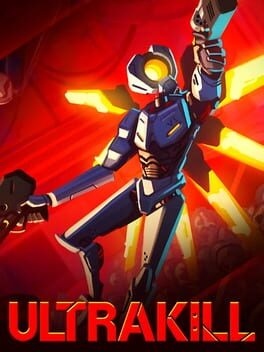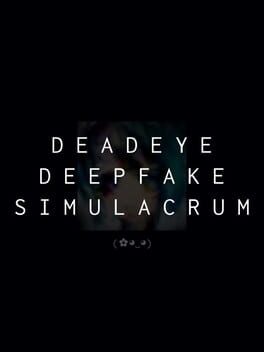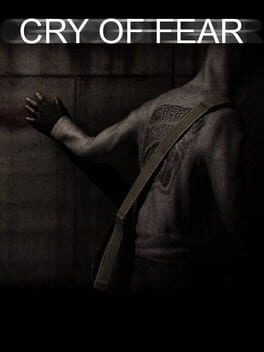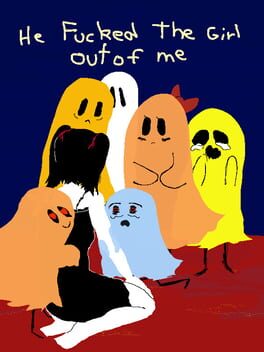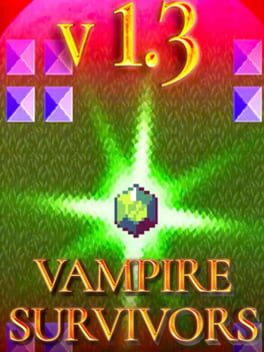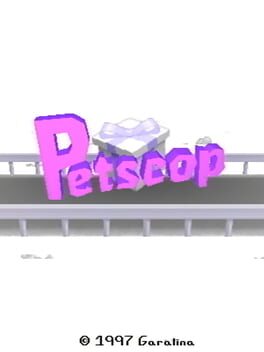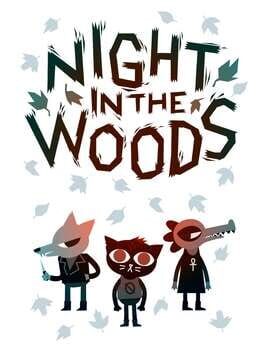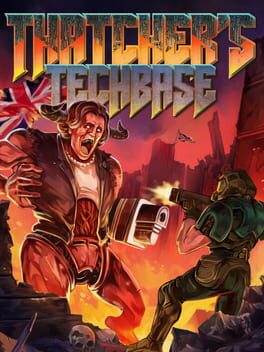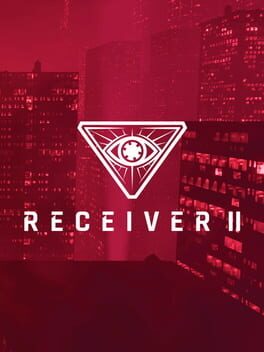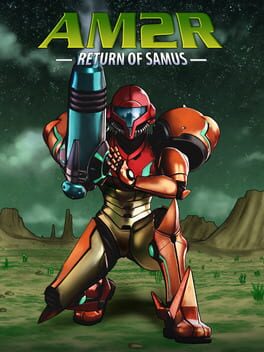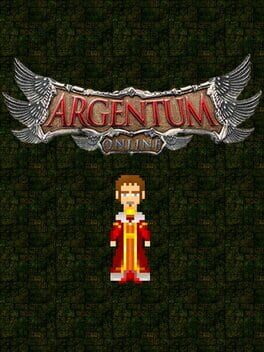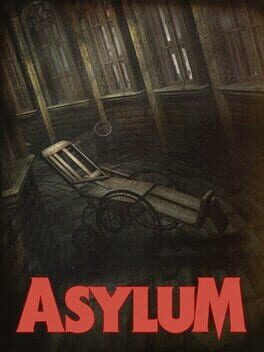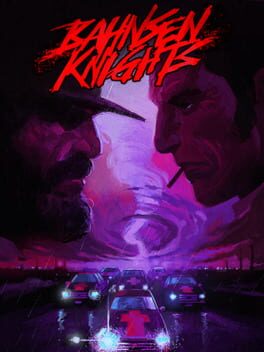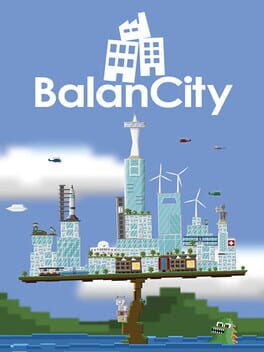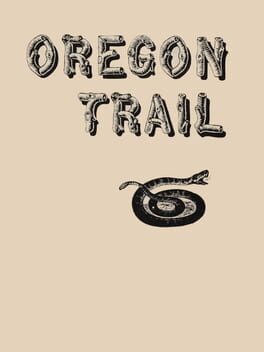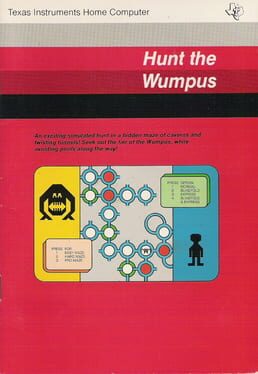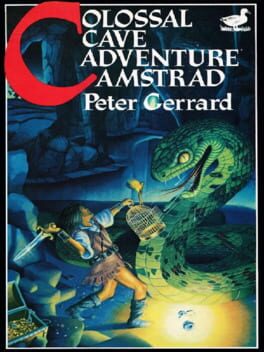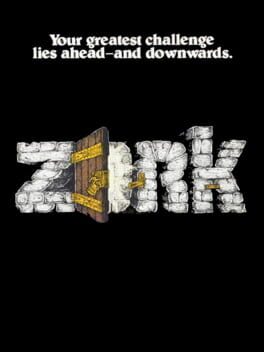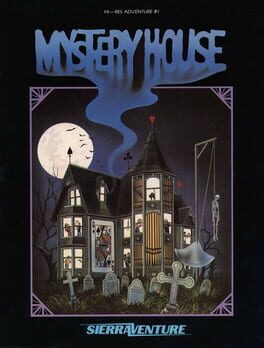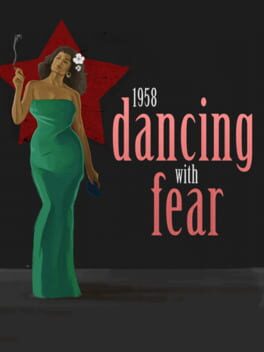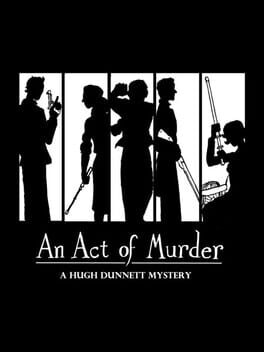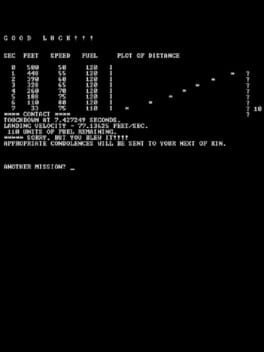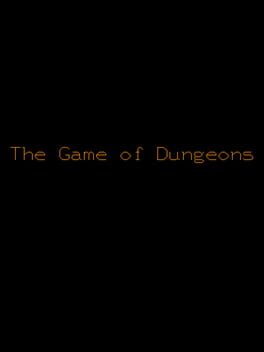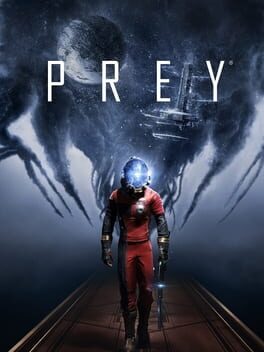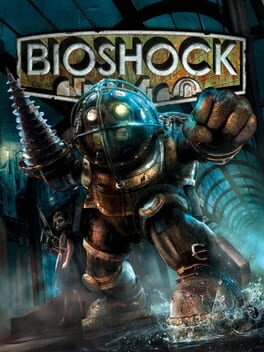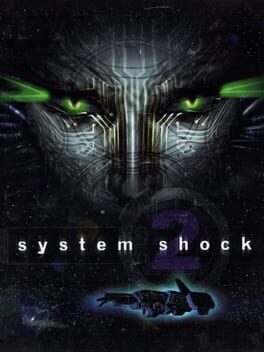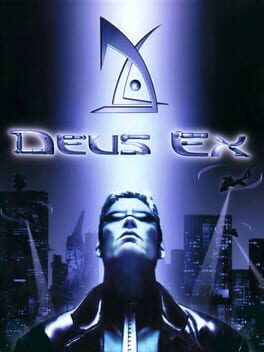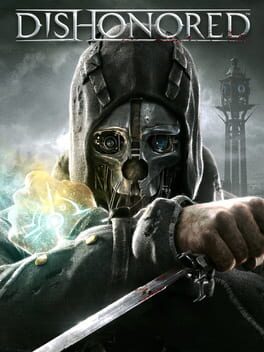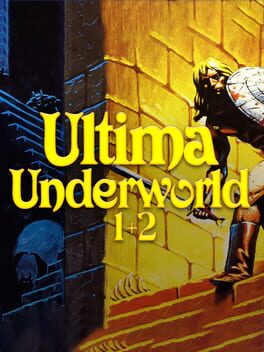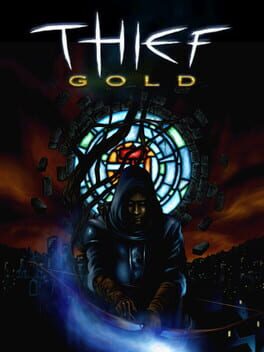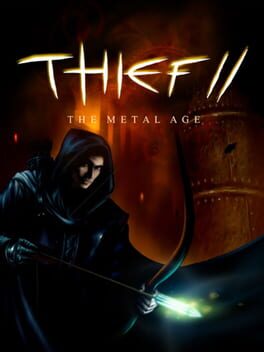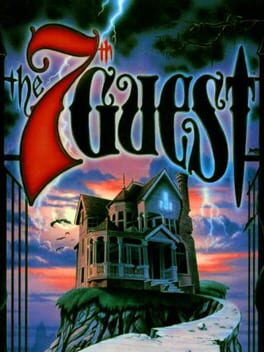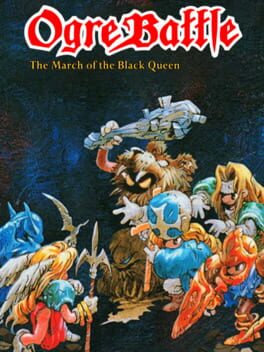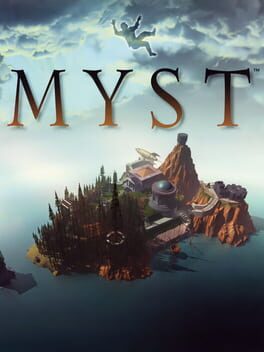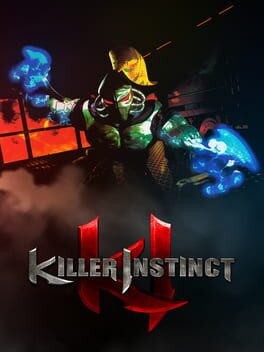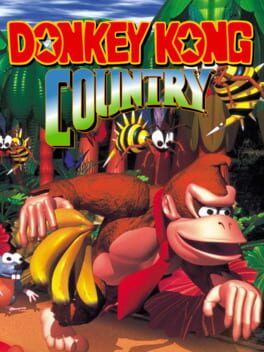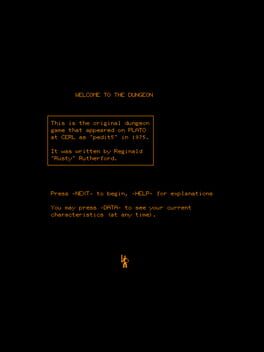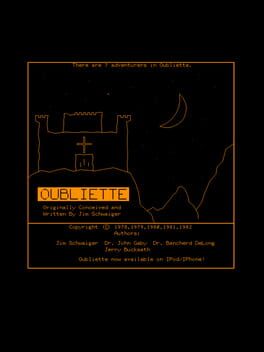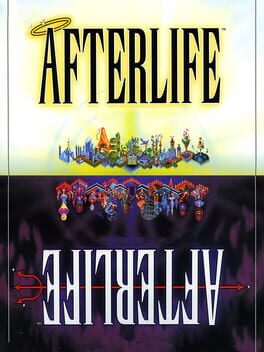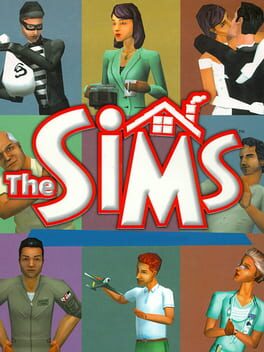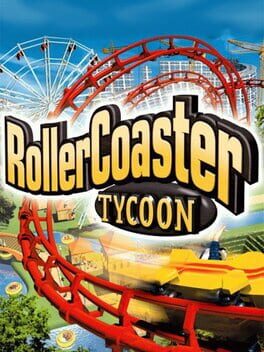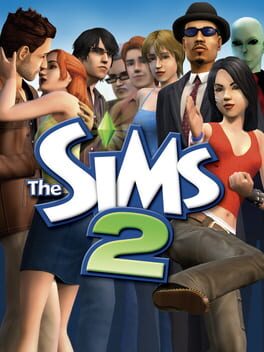tostuzo
14 reviews liked by tostuzo
Highly worth playing! I feel like this is the computer games enthusiast equivalent of enjoying a really sensitive and heartfelt cartoon (what comes to mind being Steven Universe or MLP). More to the point, there's often a lot of machismo jeering over seeing such displays of honesty and communicating sensitive information as crude and childish. I feel like by taking something so personal and painful like being trans in japan it displays a least to me how both at complete aversion to honesty or instead just sugarcoating the text as 'wholesome' and saying nothing else obscures the genuine bite underneath the surface.
Nobody in one night, hot springs gets violent or angry. Nobody dies if you make a wrong decision. The stakes are low and mundane but the rewards within the story system themselves are very high. The rewards outleap the risks in leaps and bounds, but shame creates a distortion effect where the rewards do not seem remotely worth it.
In America, where I'm playing this game from, the shame of asking a service place for particular accommodations is miniscule at best. 'Karen' customers in America come out of especially consumer privileging relationships with the service industry. American culture puts emphasis of shame instead to authenticity, employment dependency, and educational accommodations. There's a degree where which in private life there's a demand to be your 'authentic' self and that if you fail to meet up to the grand grin of authenticity you're not being a people person. However in employment life there's a degree instead to service the customer and the employer, to be everybody but yourself. Transphobia is most felt as an adult in America from the effects of employment discrimination like this.
I bring this point up mainly in relation to the zenful construction here, this cultural distinction is anticipated. Yes these considerations from the protagonist Haru are genuinely not that big of a deal to an American. For the people in Japan though these considerations are no laughing matter, bothering the system by asking for those accommodations is impolite and rude, which is a huge deal. The general impulse to a lot of these questions is 2nd hand cringe in japan, a higher likelihood to not make trouble. I believe part of what is great about this work is that it exposes within this cultural difference an implicit understanding just how hard and just how internal this process is.
I think the focus on specifically Japanese leisure experience reflects this to. The ginseng tea, clothing, and baths all have a quality of relaxing a tension. When Haru does get in a bath she mentions that she can feel the muscles in her body getting less tense. A lot of shame and self loathing itself marks itself in the body, its no surprise that Haru speaks often of being worn down and sleeping so much, and being 'too tired to talk about transgender stuff' if you refuse a lot of it. That effective connection between stress, shame, and discomfort and active bodily pain through not being able to be involved in the same leisure activity as everyone else speaks to a specific pain in discrimination that isn't generally touched on.
That's ultimately what makes the 'wholesomeness' of this text most worthwhile. It educates in the most non-intrusive way possible, hearts are deducted if you don't correct people for misgendering Haru or correcting people asking deadnames. You as the player are then implicitly encouraged by the games mechanics to go back in time and pick a different option. The game is encouraging you as much as possible to experience more. Going for the good endings is novel and going for the bad endings is just kind of boring. That doesn't mean people who got bad endings first in one night, hot springs are bad people. Instead I'm attempting to point out that such a mundane and transparent story with simple mechanics can reveal the concerns of the culture it spawned from.
There's a few different stories about particularly American reflection of trans shame. For purposes of here I'll highlight one He Fucked The Girl Out of Me, a text all about how labor relations and poverty create the blocks for shame. There is something very clearly vile and violent about that story, being around seedy people you have to fake fawning to. I believe that just as a lot of Japanese people would probably learn a lot about their cultural differences by playing that game, people outside Japan can see what one night, hot springs puts forward. Both reflect how trans people are suppressed and do it by focusing on the struggles of the mundane. Of having a tension in your muscles you cant get rid of.
Most importantly, what I love about these 'wholesome' texts is specifically how they try to bid and build networks of solidarity. In one night, hot springs being a good ally is about speaking up for discriminated people and motivating them into having a better time without pushing them, it's about communicating honestly about difficult topics. I believe that stories like this help us slowly push past the flaws of our own nation's culture and slowly build towards a necessary global solidarity.
This is why I take 'cartoons' more seriously and love them so much. The moral of the story is more complex the more you think about its wider implications and applications. Anybody who liked this game, you basically just played a really cozy episode of a TV cartoon, so think twice next time before you make jokes about bronies, otaku, or even 'disney adults' etc. They are not immature adults, they are people trying to interface with characterization and moral messages that are focused on solidarity and connecting with others. Tragic or violent art is often too stressful and reductive to those interests and so art very similar to this make it to their top 10s instead.
Nobody in one night, hot springs gets violent or angry. Nobody dies if you make a wrong decision. The stakes are low and mundane but the rewards within the story system themselves are very high. The rewards outleap the risks in leaps and bounds, but shame creates a distortion effect where the rewards do not seem remotely worth it.
In America, where I'm playing this game from, the shame of asking a service place for particular accommodations is miniscule at best. 'Karen' customers in America come out of especially consumer privileging relationships with the service industry. American culture puts emphasis of shame instead to authenticity, employment dependency, and educational accommodations. There's a degree where which in private life there's a demand to be your 'authentic' self and that if you fail to meet up to the grand grin of authenticity you're not being a people person. However in employment life there's a degree instead to service the customer and the employer, to be everybody but yourself. Transphobia is most felt as an adult in America from the effects of employment discrimination like this.
I bring this point up mainly in relation to the zenful construction here, this cultural distinction is anticipated. Yes these considerations from the protagonist Haru are genuinely not that big of a deal to an American. For the people in Japan though these considerations are no laughing matter, bothering the system by asking for those accommodations is impolite and rude, which is a huge deal. The general impulse to a lot of these questions is 2nd hand cringe in japan, a higher likelihood to not make trouble. I believe part of what is great about this work is that it exposes within this cultural difference an implicit understanding just how hard and just how internal this process is.
I think the focus on specifically Japanese leisure experience reflects this to. The ginseng tea, clothing, and baths all have a quality of relaxing a tension. When Haru does get in a bath she mentions that she can feel the muscles in her body getting less tense. A lot of shame and self loathing itself marks itself in the body, its no surprise that Haru speaks often of being worn down and sleeping so much, and being 'too tired to talk about transgender stuff' if you refuse a lot of it. That effective connection between stress, shame, and discomfort and active bodily pain through not being able to be involved in the same leisure activity as everyone else speaks to a specific pain in discrimination that isn't generally touched on.
That's ultimately what makes the 'wholesomeness' of this text most worthwhile. It educates in the most non-intrusive way possible, hearts are deducted if you don't correct people for misgendering Haru or correcting people asking deadnames. You as the player are then implicitly encouraged by the games mechanics to go back in time and pick a different option. The game is encouraging you as much as possible to experience more. Going for the good endings is novel and going for the bad endings is just kind of boring. That doesn't mean people who got bad endings first in one night, hot springs are bad people. Instead I'm attempting to point out that such a mundane and transparent story with simple mechanics can reveal the concerns of the culture it spawned from.
There's a few different stories about particularly American reflection of trans shame. For purposes of here I'll highlight one He Fucked The Girl Out of Me, a text all about how labor relations and poverty create the blocks for shame. There is something very clearly vile and violent about that story, being around seedy people you have to fake fawning to. I believe that just as a lot of Japanese people would probably learn a lot about their cultural differences by playing that game, people outside Japan can see what one night, hot springs puts forward. Both reflect how trans people are suppressed and do it by focusing on the struggles of the mundane. Of having a tension in your muscles you cant get rid of.
Most importantly, what I love about these 'wholesome' texts is specifically how they try to bid and build networks of solidarity. In one night, hot springs being a good ally is about speaking up for discriminated people and motivating them into having a better time without pushing them, it's about communicating honestly about difficult topics. I believe that stories like this help us slowly push past the flaws of our own nation's culture and slowly build towards a necessary global solidarity.
This is why I take 'cartoons' more seriously and love them so much. The moral of the story is more complex the more you think about its wider implications and applications. Anybody who liked this game, you basically just played a really cozy episode of a TV cartoon, so think twice next time before you make jokes about bronies, otaku, or even 'disney adults' etc. They are not immature adults, they are people trying to interface with characterization and moral messages that are focused on solidarity and connecting with others. Tragic or violent art is often too stressful and reductive to those interests and so art very similar to this make it to their top 10s instead.
TimeWarp
TBD
Ultrakill
2020
I honestly feel like ULTRAKILL works as well as it does partially by virtue of giving the player so many tools and such a compelling moveset that even if you're not that great at executing the game's more advanced tech (I can not reliably punch the railgun's drill from enemy to enemy like I know you can, I think I've done it successfully once), having a good understanding of "how to play" ULTRAKILL will make you feel like you're incredible at it.
If you're reliably switching weapons, staying in the air, spending what time you do have to be on the ground sliding, and thinking on your feet about which enemies to prioritize/how to regain lost blood, the style meter will literally start screaming "OH!! LOOK AT YOU!! LOOK AT THAT! LOOK WHAT YOU JUST DID! THAT WAS SICK!!" and rewarding you with insanely crunchy enemy kill sfx and screen freezes. Even in a world with Doom Eternal I feel like this is absolutely the best character action-style shooter I've played due to that alone.
If you're reliably switching weapons, staying in the air, spending what time you do have to be on the ground sliding, and thinking on your feet about which enemies to prioritize/how to regain lost blood, the style meter will literally start screaming "OH!! LOOK AT YOU!! LOOK AT THAT! LOOK WHAT YOU JUST DID! THAT WAS SICK!!" and rewarding you with insanely crunchy enemy kill sfx and screen freezes. Even in a world with Doom Eternal I feel like this is absolutely the best character action-style shooter I've played due to that alone.
On your first time typing "succ" into a computer terminal to steal data from it, you will roll your eyes or chuckle a little.
On your eightieth time typing "succ" into a computer terminal to steal data from it, hitting keys desperately as the minimap shows 5 enemies converging on your position, you will want to roll your eyes but won't be able to because if you take your eyes off what's happening around you you'll be gunned down immediately.
On your eightieth time typing "succ" into a computer terminal to steal data from it, hitting keys desperately as the minimap shows 5 enemies converging on your position, you will want to roll your eyes but won't be able to because if you take your eyes off what's happening around you you'll be gunned down immediately.
Cry of Fear
2013
I wouldn't call this game "good", but I absolutely would call it memorable and it managed to make me genuinely freaked out and nervous at times. Like you can tell this was made by one really young dude with a young dude's general impression of what "cool" and "unnerving" are, but there's so much passion and identity here that I can't help but appreciate it a lot more than I would if viewed without context
Firstly I'm openly reflecting upon this game so that people know that if you care about LGBT aubiographical trauma games (ie. No One Can Ever Know, Madotsuki's Closet, etc.) this is a very significant one to get to. My guess is that if you follow LGBT people, including me, youre going to see this on a lot of 'end of year' lists.
Now one thing I want to point out that is interesting is that due to how emotionally affecting this is, most people have gone on to speak about how it made them cry or reflect their own experiences. Even from people on here actually known for usually writing more erudite reflections. This speak to the power of its performance, but I'll be the one to highlight how.
Once you run the game on browser it blows up to fill your whole browser windows as large as possible, regals you the controls and then allows you to walk. Then, once you move to the edge of the screen 2 things happen:
Would you like to see trigger warnings? (Yes, No)
And then the first line of self narration from Ann: "The problem with talking about this is: I don't know how people will react"
One of the narrative vulnerabilities that segments this from other games of this type is that it will absolutely ask you as a player to think about your intentions in play. Pretty immediately, Ann covers both the fact that sex-work is often lionized and that this is fine by trans people as a narrative of independency. And also that, not simply just the 'text' but the main autobiographical narrator does NOT want this game to be used as a weapon to scold sex workers. What makes this great is that she effectively pulls this off without resorting to second person phrasing saying 'you might think' etc.
Ann is deeply unjudgemental in a general sense but also correctly figures out through her own internalizations that she doesn't really know yet who is reading that, that who could be anybody.
Ann as a character is very timid, flat, and introspective allowing for her lines to travel to the player directly and without flourish. Lines flow out of Ann completely naturalistically like "I couldn't really hear anything" rather than trying to describe it in some detail or another. This enhances the fact that its utilizing the smaller text box design of game boy games. Comprehension and clarity never become an issue during play.
The story is about how Sugaring made Ann less connected to her sense of self-worth and identity as a woman, which may explain why her avatar is a ghost rather than any attempt at depicting herself as a trans woman who just came out recently. It works as another fracture to remind the player that this is just a representation of the events reinterpreted by an older developer who views it as trauma.
Even outside of that the visual design and compositions are absolutely masterful. For example you end up seeing her crush sally from every angle in 2D space during close up scenes, when you move from walking to full on portraits. All of them are gorgeous but here's 2 examples from early on. Even for people who may not personally get much from the story itself, the mastery of the art design is to die for, especially if you're a fan of Game Boy Color games.
I'll join everyone else quickly on the more personal reflection here I admit this part is a bit TMI so skip it if you don't care:
I have always personally had a unstable relationship with the prospect of sex work, due to my own economic conditions and general dysphoria I haven't even felt close enough to the state I want to be in in order to really consider it. Hell the best camera I have for online sex work is a web camera that had its hinge broken off because a friend smacked a fly. So I have actually engaged in and desired the idea of sex work as somewhat of a liberatory function, mostly for online because I always saw irl stuff as both much more seedy and much more anxiety inducing. The matter of fact is I'm a bit of an agoraphobe in general because I can't control how im seen, not just a fear of transphobia but a functionally Weirder fear that I might be only beautiful from a specific angle and the fact I dont have a camera that shows people that angle makes me miserable. As such I tend to also imbue sex work with this mystic sensibility that anybody doing that probably feels visually just perfect, a 2nd order jealousy and dysphoria justified. To a large degree I think this is probably just my own brainrot due to dysphoria, but the reason I'm giving so much depth on this set of cognitive interactions and desires is that while Ann is not critical against embellishing sex work outright, she does show that its not all fun and games for Sally and that Sally feels sort of like she needs to put up a 'sociopathic' identity in order to detach. Even if you are stunning and beautiful, and even if you can utilize it to get independence through others. The fact of the matter is a large part of the game is about being desired yet trying not to let yourself 'know' the other person too much.
On a larger point this is not the only occupational ability given this degree of fixation as a liberation tool in Transfemme spaces. The Blackpaper by Nyx Land is a now slightly dated manifesto that makes a dramatic argument that Transwomen and coding are intertwined, using a quite conspiratorial logic via connecting the word UNIX to biblical references. Seeing this as a 'high IQ' form of liberation, a lot of trans women also imbue coding with this sort of liberatory function, and I feel I should stress that it's actually mostly harmless. While the Blackpaper is weird it imbues a lot of transwomen with a faith and narrative to move on. The reality is just that just as Ann shows an inability to endure to the standards of her field the other reality is that even though its a coping mechanism, we shouldn't actually expect queer people to individually 'be' good at something. For one, it takes a lot of time to get to where you want to be anyway, being a good coder or a good sex worker is not that much different a skill than, say, being good at makeup. In the same way its not ok to push transwomen to be better at makeup or tell them they haven't tried hard enough so to does it reflect here. On top of that for non-transfemme people the sentiments we are good at Hoi4, Fighting Games, Coding, Game Development, are all culturally accurate on a large level but still stereotypes. I'm not good at any of this stuff and a result can mean that people often ignore what I am good at or want to be good at. There are a lot of people out there that fail to meet any of these abilities and are seen as unexceptional, the irony is that Ann or more to the fact the author, Taylor, is 'good at Game Design' (or maybe more art design) but that's not core to the narrative at all. She just wants to exist and this happened a decade ago. So when trans people (of any gender) tell you they just want to exist in peace this is more what we mean! We shouldn't have to find a skill that makes us separated from transphobia, wherein the leisure time to improve in these lionized skills is usually dramatically truncated in comparison to a cis person anyway. The desire to 'overcome' is inherent in anybody looking to escape the chains of capitalist exploitation but we are creatures first, not workers. And as such the narrative of overcoming implies by its own design that others didn't overcome, and until we listen to what they are saying and help them, things aren't going to get better.
Anyway, I straight up don't trust anybody who gave this a 1 out of 10, and I'm summarily blocking all those fuckers in advance. A natural memoir about transphobia and trauma and you give it a 1? Get the fuck out of here with that. A 3-5/10 I can understand, but a 1 is just showing transphobic ass in a way that's 'subtle' enough not to get reported. If you're reading this and you did that, fuck you, I don't want anything to do with you. Scumfuck bastard.
Edit: Franz mentioned to me that these people have a history of doing this. I knew I was onto something. Keep an eye out on these dudes..
Now one thing I want to point out that is interesting is that due to how emotionally affecting this is, most people have gone on to speak about how it made them cry or reflect their own experiences. Even from people on here actually known for usually writing more erudite reflections. This speak to the power of its performance, but I'll be the one to highlight how.
Once you run the game on browser it blows up to fill your whole browser windows as large as possible, regals you the controls and then allows you to walk. Then, once you move to the edge of the screen 2 things happen:
Would you like to see trigger warnings? (Yes, No)
And then the first line of self narration from Ann: "The problem with talking about this is: I don't know how people will react"
One of the narrative vulnerabilities that segments this from other games of this type is that it will absolutely ask you as a player to think about your intentions in play. Pretty immediately, Ann covers both the fact that sex-work is often lionized and that this is fine by trans people as a narrative of independency. And also that, not simply just the 'text' but the main autobiographical narrator does NOT want this game to be used as a weapon to scold sex workers. What makes this great is that she effectively pulls this off without resorting to second person phrasing saying 'you might think' etc.
Ann is deeply unjudgemental in a general sense but also correctly figures out through her own internalizations that she doesn't really know yet who is reading that, that who could be anybody.
Ann as a character is very timid, flat, and introspective allowing for her lines to travel to the player directly and without flourish. Lines flow out of Ann completely naturalistically like "I couldn't really hear anything" rather than trying to describe it in some detail or another. This enhances the fact that its utilizing the smaller text box design of game boy games. Comprehension and clarity never become an issue during play.
The story is about how Sugaring made Ann less connected to her sense of self-worth and identity as a woman, which may explain why her avatar is a ghost rather than any attempt at depicting herself as a trans woman who just came out recently. It works as another fracture to remind the player that this is just a representation of the events reinterpreted by an older developer who views it as trauma.
Even outside of that the visual design and compositions are absolutely masterful. For example you end up seeing her crush sally from every angle in 2D space during close up scenes, when you move from walking to full on portraits. All of them are gorgeous but here's 2 examples from early on. Even for people who may not personally get much from the story itself, the mastery of the art design is to die for, especially if you're a fan of Game Boy Color games.
I'll join everyone else quickly on the more personal reflection here I admit this part is a bit TMI so skip it if you don't care:
I have always personally had a unstable relationship with the prospect of sex work, due to my own economic conditions and general dysphoria I haven't even felt close enough to the state I want to be in in order to really consider it. Hell the best camera I have for online sex work is a web camera that had its hinge broken off because a friend smacked a fly. So I have actually engaged in and desired the idea of sex work as somewhat of a liberatory function, mostly for online because I always saw irl stuff as both much more seedy and much more anxiety inducing. The matter of fact is I'm a bit of an agoraphobe in general because I can't control how im seen, not just a fear of transphobia but a functionally Weirder fear that I might be only beautiful from a specific angle and the fact I dont have a camera that shows people that angle makes me miserable. As such I tend to also imbue sex work with this mystic sensibility that anybody doing that probably feels visually just perfect, a 2nd order jealousy and dysphoria justified. To a large degree I think this is probably just my own brainrot due to dysphoria, but the reason I'm giving so much depth on this set of cognitive interactions and desires is that while Ann is not critical against embellishing sex work outright, she does show that its not all fun and games for Sally and that Sally feels sort of like she needs to put up a 'sociopathic' identity in order to detach. Even if you are stunning and beautiful, and even if you can utilize it to get independence through others. The fact of the matter is a large part of the game is about being desired yet trying not to let yourself 'know' the other person too much.
On a larger point this is not the only occupational ability given this degree of fixation as a liberation tool in Transfemme spaces. The Blackpaper by Nyx Land is a now slightly dated manifesto that makes a dramatic argument that Transwomen and coding are intertwined, using a quite conspiratorial logic via connecting the word UNIX to biblical references. Seeing this as a 'high IQ' form of liberation, a lot of trans women also imbue coding with this sort of liberatory function, and I feel I should stress that it's actually mostly harmless. While the Blackpaper is weird it imbues a lot of transwomen with a faith and narrative to move on. The reality is just that just as Ann shows an inability to endure to the standards of her field the other reality is that even though its a coping mechanism, we shouldn't actually expect queer people to individually 'be' good at something. For one, it takes a lot of time to get to where you want to be anyway, being a good coder or a good sex worker is not that much different a skill than, say, being good at makeup. In the same way its not ok to push transwomen to be better at makeup or tell them they haven't tried hard enough so to does it reflect here. On top of that for non-transfemme people the sentiments we are good at Hoi4, Fighting Games, Coding, Game Development, are all culturally accurate on a large level but still stereotypes. I'm not good at any of this stuff and a result can mean that people often ignore what I am good at or want to be good at. There are a lot of people out there that fail to meet any of these abilities and are seen as unexceptional, the irony is that Ann or more to the fact the author, Taylor, is 'good at Game Design' (or maybe more art design) but that's not core to the narrative at all. She just wants to exist and this happened a decade ago. So when trans people (of any gender) tell you they just want to exist in peace this is more what we mean! We shouldn't have to find a skill that makes us separated from transphobia, wherein the leisure time to improve in these lionized skills is usually dramatically truncated in comparison to a cis person anyway. The desire to 'overcome' is inherent in anybody looking to escape the chains of capitalist exploitation but we are creatures first, not workers. And as such the narrative of overcoming implies by its own design that others didn't overcome, and until we listen to what they are saying and help them, things aren't going to get better.
Anyway, I straight up don't trust anybody who gave this a 1 out of 10, and I'm summarily blocking all those fuckers in advance. A natural memoir about transphobia and trauma and you give it a 1? Get the fuck out of here with that. A 3-5/10 I can understand, but a 1 is just showing transphobic ass in a way that's 'subtle' enough not to get reported. If you're reading this and you did that, fuck you, I don't want anything to do with you. Scumfuck bastard.
Edit: Franz mentioned to me that these people have a history of doing this. I knew I was onto something. Keep an eye out on these dudes..
Pagan: Autogeny
2019
Car Companion
One aspect that my own discipline on how I go about reflecting on games on here evades is the fact that I'm kind of a moron. As I eluded mildly in my last post, Minimalist, my relationship to my memories and recall is at best mildly amusing, imitating a real 'whose on first' style of trivia prompting from other people. At its worst though, it feels like early onset dementia. For instance earlier today, somebody liked my post on Magic Vigilante this fantastic horizontal shmup that I poured a strong appraisal in. I don't remember writing this, and I almost don't remember playing the game. If you had asked me 'what did you think of Magic Vigilante' 2 days after I played the game, I would tell you 'what? what are you talking about?'. I do like it now that I remember it, I do want to play it again sometime soon, but I didn't recall it at all until that happened. It's possible part of that is due to the fact there's no point in a SHMUP where you can sit and stare at scene and let it imprint. The sequences of what you see on screen in a SHMUP are by design always moving. There's a terminal rush going on that never slows down. This explains certainly why I can remember what the shop looks like in Oblivion (dusty, some barrels around, croaky music, potion flasks littered around everywhere, a soothing tannish brown plastered on all the objects) yet not remember so well a SHMUP, but this explanation is just that: an explanation. At the end of the day my memory is still painfully jagged and sudden. It's a ball of worms, not an epiphany. This is the norm.
I don't really want to continue endlessly the wistfulness about myself here, I think it can start this slightly obnoxious descent into a panicky attitude about life. It can cause readers to want to bow out because you're no longer focused on the experiences of the game but instead yourself. I don't want to come on here and act like a David Foster Wallace short story on everyone's timeline by any means. So, the point of noting this at all is simply to say that when some of us joke we don't remember what we even had for breakfast yesterday, that's not a joke, we really mean it.
Contrast that with the work of the Pagan series and some of my initial insecurity about intelligence and memory start to make sense. Many other people mention that Pagan: Autogeny leaves the vignette formula of the previous 2 games, and clearly follows up on building a more ambitious world that those 2 games set out. Lost niche MMOs to war, girls that may no longer exist, tarot cards, etc. You're clearly meant to be in a hostile world of knowledge you're behind on. But some more behind than others. The first title, Pagan: Technopolis is stated to be good but constrained in comparison to how 'ambitious' this title is. I disagree. Before you even download the game you're hit with a James Joyce quote, you know the modernist icon of synaptic memory. I've read some Joyce, particularly A Portrait of the Artist as a Young Man which in many ways may be my favorite book, but the thing is that's 19 year old Joyce, one where there's some references to a bygone past but still playful within a limit you can understand. The references aren't overwhelming yet. She quotes from a short story collection Dubliners, in which symbolic objects begin to take on a multiplicity of meaning to such an extent it feels intimidating. I've been a 'fraudulant fan' of Joyce for a good while but the reality is I never could get past the first chapter in any of his other books. I just liked the prose.
Opening the first game in your trilogy with a Joyce quote rings these very specific alarm bells to a player in the know: Pay attention! The 'small scope' of that game, duely populated as it is, makes up plenty in its evocative density. A nuclear processing plant that's just an entire section of town. A weird fox cult. A player piano ringing out in particular a classical tune I straight up cant remember (god save me for this, I hummed it drunk once in a moment of pure suffering about 5 months ago now, at my lowest, and yet I can't remember the name). Finally you're building the statue of Venus. Goddess of love. I don't know, its all very 'considered' in my view. Each symbol is trying to evoke something in reference to everything else. There's a sense of relational distance going on that is surprisingly rare for the medium. I'm behind on my mythological history though, so its all lost on me. Point is that Autogeny is not where it first gets symbolically esoteric, it's just a slightly larger version of the same contemplation.
By this game the textuality of it. In the texture of the world had set in, this game series was clever and mysterious. I was having trouble keeping up so I asked a friend to help me out. @BloodMachine. Very helpful she was, though consternated me rightly for feeling lost and helpless through the world. This was over half a year ago now, but it feels like it happened half a decade ago honestly. I beat one of the endings, and a mystical angel beamed down and broke the world. That's not the real ending, you have to go back in there and do something else. So I did, I tried to.
Then it happened. The dreadful memory of a childhood wasted.
I found what I think is a 'bug'. In Pagan: Autogeny one way in which you can fast travel is via a car. Which takes you there automatically. You can look around in the front seat as its railroads you back and forth between that destination point. Somehow the car sequence looped, and just waited around for it to stop. It never did, so I soaked in it, and lay down for a bit with it running. The soothing reverberation and chaotic anxiety of being trapped in a vehicle outside your modus of control. I was transported back to the misery of my childhood, in a miserable professorial little gender I would later denounce...
My family spent years in my youth traveling by car. Hundreds upon thousands of hours spent in this vehicle. I would always try to read, get sickly and lie down. It was boring but soothing in a bleak way. Many peoples childhoods are made up of playground antics, or daycare entertainment. They reflect fondly on how they spent years of their life like this. Mine was spent listening to shitty rock music, on the highway, quietly closing my eyes or imagining some creature a friend chasing me leaping from tree to tree inspired by the energetic scenes in Code Lyoko...my favourite show as a child which I remember shit all about now. My isolated childhood, a majority car. It came back to me. The alienness of it. No wonder I have such a faulty relationship to memory when burbling down american roads in transit is the highlight of my childhood. Keeping myself entertained through the mild car sickness by doing mental math puzzles at 5. Doing sudokus at 10. Daydreaming at 14. Thinking about anime at 19. Arrested asphalt development.
I'm not sure I will ever understand what the Pagan games are trying to tell me. But the sound effects work here in this way of 'uncovering'. When you leave one area into another there's a loud door slam noise. You swear you've heard it somewhere before. It's all satisfying in this way. You swear you've fought this frog boss somewhere before. A game that feels like a representation of something lost. In choice moments it comes into your vision and then goes vague again. You walk at the perfect speed, its all rightly woozy. This is life, ambiguous and unsatisfying in its complexity, and all you can cling onto is these weird noises that remind you of your childhood. Devs might find this relationship to their work cantankerous and anti intellectual. To me though, the sound design is the alpha and omega to this whole resonance. Trap a player in a room and perform the right sounds at them, and see what happens.
The worlds, the noises they make when you interact in certain ways. Sound design is the 'prose' of videogames. The gameplay don't have to be 'perfect'. You don't have to find the 'ending' or 'get it'. Its just there, its just those noises and that world, the complexity of references only get you so far. When all is done, for me at least, its how it sounds that really matters, and this, for me, one of the best sounding worlds out there.
One aspect that my own discipline on how I go about reflecting on games on here evades is the fact that I'm kind of a moron. As I eluded mildly in my last post, Minimalist, my relationship to my memories and recall is at best mildly amusing, imitating a real 'whose on first' style of trivia prompting from other people. At its worst though, it feels like early onset dementia. For instance earlier today, somebody liked my post on Magic Vigilante this fantastic horizontal shmup that I poured a strong appraisal in. I don't remember writing this, and I almost don't remember playing the game. If you had asked me 'what did you think of Magic Vigilante' 2 days after I played the game, I would tell you 'what? what are you talking about?'. I do like it now that I remember it, I do want to play it again sometime soon, but I didn't recall it at all until that happened. It's possible part of that is due to the fact there's no point in a SHMUP where you can sit and stare at scene and let it imprint. The sequences of what you see on screen in a SHMUP are by design always moving. There's a terminal rush going on that never slows down. This explains certainly why I can remember what the shop looks like in Oblivion (dusty, some barrels around, croaky music, potion flasks littered around everywhere, a soothing tannish brown plastered on all the objects) yet not remember so well a SHMUP, but this explanation is just that: an explanation. At the end of the day my memory is still painfully jagged and sudden. It's a ball of worms, not an epiphany. This is the norm.
I don't really want to continue endlessly the wistfulness about myself here, I think it can start this slightly obnoxious descent into a panicky attitude about life. It can cause readers to want to bow out because you're no longer focused on the experiences of the game but instead yourself. I don't want to come on here and act like a David Foster Wallace short story on everyone's timeline by any means. So, the point of noting this at all is simply to say that when some of us joke we don't remember what we even had for breakfast yesterday, that's not a joke, we really mean it.
Contrast that with the work of the Pagan series and some of my initial insecurity about intelligence and memory start to make sense. Many other people mention that Pagan: Autogeny leaves the vignette formula of the previous 2 games, and clearly follows up on building a more ambitious world that those 2 games set out. Lost niche MMOs to war, girls that may no longer exist, tarot cards, etc. You're clearly meant to be in a hostile world of knowledge you're behind on. But some more behind than others. The first title, Pagan: Technopolis is stated to be good but constrained in comparison to how 'ambitious' this title is. I disagree. Before you even download the game you're hit with a James Joyce quote, you know the modernist icon of synaptic memory. I've read some Joyce, particularly A Portrait of the Artist as a Young Man which in many ways may be my favorite book, but the thing is that's 19 year old Joyce, one where there's some references to a bygone past but still playful within a limit you can understand. The references aren't overwhelming yet. She quotes from a short story collection Dubliners, in which symbolic objects begin to take on a multiplicity of meaning to such an extent it feels intimidating. I've been a 'fraudulant fan' of Joyce for a good while but the reality is I never could get past the first chapter in any of his other books. I just liked the prose.
Opening the first game in your trilogy with a Joyce quote rings these very specific alarm bells to a player in the know: Pay attention! The 'small scope' of that game, duely populated as it is, makes up plenty in its evocative density. A nuclear processing plant that's just an entire section of town. A weird fox cult. A player piano ringing out in particular a classical tune I straight up cant remember (god save me for this, I hummed it drunk once in a moment of pure suffering about 5 months ago now, at my lowest, and yet I can't remember the name). Finally you're building the statue of Venus. Goddess of love. I don't know, its all very 'considered' in my view. Each symbol is trying to evoke something in reference to everything else. There's a sense of relational distance going on that is surprisingly rare for the medium. I'm behind on my mythological history though, so its all lost on me. Point is that Autogeny is not where it first gets symbolically esoteric, it's just a slightly larger version of the same contemplation.
By this game the textuality of it. In the texture of the world had set in, this game series was clever and mysterious. I was having trouble keeping up so I asked a friend to help me out. @BloodMachine. Very helpful she was, though consternated me rightly for feeling lost and helpless through the world. This was over half a year ago now, but it feels like it happened half a decade ago honestly. I beat one of the endings, and a mystical angel beamed down and broke the world. That's not the real ending, you have to go back in there and do something else. So I did, I tried to.
Then it happened. The dreadful memory of a childhood wasted.
I found what I think is a 'bug'. In Pagan: Autogeny one way in which you can fast travel is via a car. Which takes you there automatically. You can look around in the front seat as its railroads you back and forth between that destination point. Somehow the car sequence looped, and just waited around for it to stop. It never did, so I soaked in it, and lay down for a bit with it running. The soothing reverberation and chaotic anxiety of being trapped in a vehicle outside your modus of control. I was transported back to the misery of my childhood, in a miserable professorial little gender I would later denounce...
My family spent years in my youth traveling by car. Hundreds upon thousands of hours spent in this vehicle. I would always try to read, get sickly and lie down. It was boring but soothing in a bleak way. Many peoples childhoods are made up of playground antics, or daycare entertainment. They reflect fondly on how they spent years of their life like this. Mine was spent listening to shitty rock music, on the highway, quietly closing my eyes or imagining some creature a friend chasing me leaping from tree to tree inspired by the energetic scenes in Code Lyoko...my favourite show as a child which I remember shit all about now. My isolated childhood, a majority car. It came back to me. The alienness of it. No wonder I have such a faulty relationship to memory when burbling down american roads in transit is the highlight of my childhood. Keeping myself entertained through the mild car sickness by doing mental math puzzles at 5. Doing sudokus at 10. Daydreaming at 14. Thinking about anime at 19. Arrested asphalt development.
I'm not sure I will ever understand what the Pagan games are trying to tell me. But the sound effects work here in this way of 'uncovering'. When you leave one area into another there's a loud door slam noise. You swear you've heard it somewhere before. It's all satisfying in this way. You swear you've fought this frog boss somewhere before. A game that feels like a representation of something lost. In choice moments it comes into your vision and then goes vague again. You walk at the perfect speed, its all rightly woozy. This is life, ambiguous and unsatisfying in its complexity, and all you can cling onto is these weird noises that remind you of your childhood. Devs might find this relationship to their work cantankerous and anti intellectual. To me though, the sound design is the alpha and omega to this whole resonance. Trap a player in a room and perform the right sounds at them, and see what happens.
The worlds, the noises they make when you interact in certain ways. Sound design is the 'prose' of videogames. The gameplay don't have to be 'perfect'. You don't have to find the 'ending' or 'get it'. Its just there, its just those noises and that world, the complexity of references only get you so far. When all is done, for me at least, its how it sounds that really matters, and this, for me, one of the best sounding worlds out there.
CN: Discussions of Capitalist Exploitation, Health Concerns
Est. Reading time: 17 Minutes
--------------------------------------------
So, coming back around to this conundrum and recognizing it's churning out more and more updates and DLCs, I've realized I can only speak about this issue at its most abstracted, through analyzing the production of 'progression systems' in these games and then go from there. I know for some this will seem obnoxious but bear with me for a bit, I'm hoping this will get interesting.
Assuming you're at least somewhat interested in game design, which is hopefully the case if you're reading this, then I'd like to take this opportunity to encourage you to play a, what for the moment is called a 'survivor-like' like Vampire Survivors here for at least an hour or two (You can play Vampire Survivors or Magical Survival on your phone for free if you'd like, or use Bluestacks). Don't worry, I'm not going to sit here and tell you they're hidden gems or anything but they do illustrate a point about game design in general.
If one were to ask me these bear the most resemblance to the rpg genre, play something like final fantasy or diablo, and a large part of the appeal is finally reaching that next level you've been anticipating. Things tend to be measured in experience points with little bars displaying progress you can grind towards somewhere along the way these elements which used to be exclusive to rpgs began to migrate outwards slowly permeating everything. At this point that assimilation seems more or less complete. Now, many games have something similar: level up to increase your damage or get a new loot box or just so your icon will look a little more fancy.
In some cases these leveling systems don't even affect the gameplay at all, which leads to the question of why they exist in the first place? The answer is pretty obvious: people used to play quake 3 all the time just because they enjoyed it; it didn't need anything else to keep them hooked. Now if we imagine two identical versions of quake happen to release on the same Day, one with a progress system and one without, it's easy to guess which one would win a larger player base. Even if both audiences were still small, while some players won't care about the difference, others will be drawn to the progression system, in which case that version has a greater chance of surviving while the more minimalist one fades into a relevancy.
Economics fuel much of this problem with the progression system comes unlockables, and with unlockables comes micro transactions to acquire them immediately that income can be used to extend development updating the game with more content providing a feedback loop of success. This probably doesn't come as a surprise to you, but there's a more sinister way of thinking about it which you may not have struck upon yet: In a sense, games are evolving to exploit us.
Even if no individual person agrees that progression systems are a good thing, they tap into a simple desire we all have to one degree or another. If you're a fan of the metal gear series then i don't have to explain the true meaning of the word 'meme' to you but for everyone else a quick rundown the basic premise is that ideas are a little like genes successful ones get passed down to future generations while unsuccessful ones disappear. Keep in mind, this doesn't mean the idea is beneficial or detrimental to humanity, just that it perpetuates itself somehow. Progression systems could be seen as a successful 'meme' which will be difficult to eradicate. Ironically, even the metal gear series itself fell prey to this particular trend. Now that most games have something like this, it's hard to envision how another game can compete without it even if you create something enjoyable enough to survive without this meme someone else can come along, create a clone of your game, slap a progression system on it and steal your audience much like click bait. It's a selection pressure that will seemingly never go away anymore. If one were to ask me, that doesn't excuse developers or critics who rely on such tactics, but it's a reality we need to confront sooner or later. On paper wouldn't we all agree that getting better at a game yourself is much more rewarding than pretending you've gotten better by unlocking more upgrades?
It's worth examining whether your behavior aligns with your answer to that question this is why playing an idler can be beneficial, because there's few better ways to break the spell than to confront the absurdity of it all. After you've killed a thousand baddies per minute, killing a skeleton for 25 xp doesn't hold quite as much significance. Despite how it might seem at times games aren't the shit you pick up while you play them the actual game is what happens in between those moments.
When you recognize that just walking in circles and watching the number increment can be enjoyable, you recognize that there's something exploitable about the way many of us are wired. As a species we have these collective weaknesses and now more than ever games are tapping into them so either you make a conscious effort to push back or get rolled over like so much squashed dough.
-------------------------------------------
As some of you have no doubt recognized, I didn't write any of that. With the exception of the first paragraph and switching some words so that its about these 'survivor-likes' instead of about idlers, this is actually just the Full Excerpt of 'Clickerbait' by Matthewmatosis. Perhaps you realized that because you scrolled down here to see what the you were getting into ahead of time, or perhaps you know because you're already a fan of Matthewmatosis and so the disguise didn't work in the first place (I'm hoping that group will be compelled to know 'why' I was deceptive about that in the first place, hopefully you'll be rewarded to).
Regardless, let's assume that I've effectively fooled a reasonable minority of the readership that would come in contact this this piece. I'm sorry for the masquerade, but it was for an important purpose: I really wanted you to confront this. You could call this an intervention, not just for people who like this genre or title in particular, but for every videoplay enthusiast, including myself. Now that you've made it this far you might as well see what else I have to say. There is only an Est. Reading time of 10 minutes left, I believe in you!
--------------
Since the writing of this excerpt, 2 years ago. I would argue the only thing that has changed is that no longer do we all agree that 'on paper' that getting better at a system yourself is much more rewarding than the illusion that we have. Our collective sensitivity to that awareness has shifted into an embrace of these systems. So what? Illusions are fun, all videogames are illusions if you think about it! A classic comeback, I abhorrently disagree. Let's take the phenomenon of 'digital eye strain' (that is to say the pain incurred on your eyes by prolonged digital media use) into account. Games can hurt your eyes:
"The outcome measures were mostly self-reported symptoms and not objectively measured findings. The issues that were reported were related either to with prolonged near-term adaptation (i.e., blurred vision at close range, difficulty in focusing, and copious headache after screen use) and those related to dry eye syndrome (irritation/burning sensation, ocular fatigue, discomfort, photosensitivity), while symptoms due to poor posture and prolonged physical immobilization in front of the screen (such as neck pain, tension headache, and other atypical musculoskeletal pain) are also very common. Pre-existing vision problems (hyperopia / myopia, astigmatism, and adaptive disorders) can contribute to the appearance of the syndrome if they are not adequately addressed or have not yet been diagnosed" - The Impact of Internet and Videogaming Addiction on Adolescent Vision: A Review of the Literature
Or, they can help your eyes:
"Players have presented better results than non-players in a variety of tasks that involve vision but are ultimately controlled by cortical structures in the brain, especially those involved in prediction. These include enhanced contrast sensitivity, shorter saccadic reaction times with better error rates, higher spatial resolution of vision, and a variety of specific improvements on memory function and focused attention. Playing action videogames can alter fundamental characteristics of the visual system, seen as a whole, that is, including the cortical structures that are responsible for image processing, pre-emptive movements of the ophthalmic muscles." - (sic)
"Cognitive gains have been demonstrated in all test designs with relatively few hours of playing videogames, and as with all aspects of brain plasticity, gains are to be expected with frequent execution of a well-designed task that lasts for relatively little time. Hence, playing random videogames to the degree that it may cause temporary harm to the receptor organ does not correlate positively with gains in the vision process as a whole. The increased propensity of eSports during the past decade, i.e., videogaming as a form of sport competition could be a useful source of research data; playing competitively does not equate with playing excessively, yet those competitive players need to regularly exercise their skills, even spending 6 h daily of deliberate practice and various forms of non-deliberate practice that revolves around viewing others play through a digital screen. Unfortunately, published research on this niche population so far is poor." - Digital eye strain: prevalence, measurement and amelioration
Label me as histrionic if you wish, but I'm sick of appeasing that 'Videogames' are a net neutral medium, they are always either assisting or harming to some degree whether intentionally or not. Seems almost impossible to me to argue that this 1 joycon movement system isnt doing more harm than good to your eyes. Especially since play ends up pathing most of it in cyclical loops with your character always centered. This is exactly what I was trying to say when I stated that 'Although one could argue that the destruction of enemies is also a 'jackpot' reward system, I feel it's actually comparable more to just visual encouragement data like the bright candy explosions in Candy Crush, or the neon bright machines and loud sound effects of slot machines, rather those smaller moments are not the real 'jackpot' you are in pursuit of.' It's not about how randomness works, its about sensory overload.
"Although ergonomics and noise exposure are commonly documented in occupational safety research in other industries, no U.S. studies were found that assessed these hazards among U.S, casino workers. Evidence from international research suggests that these hazards are problematic for worker health in the casino environment. Furthermore, gaming workers from other countries have cited exposure to poor ergonomics; chemical hazards (e.g., cleaning products and coin dust); and biological hazards through constant interaction with clients, temperature extremes, noisy environments, flashing lights, and poor air quality. Also, casino workers in other countries have complained of pain in the lower back, shoulder, joint, neck and head, hearing loss; eye strain; respiratory and reproductive issues; and ill-health and injuries" -Occupational exposures and associated risk factors among U.S. casino workers: a narrative review
That 'tradeoff' is a literal one of sensory deterioration to your eyes and ears, that's what you were exchanging as a worth function, it was never merely your leisure time. Of course, right upon my realizing this, a close confidante I told this to stated and I quote 'I don't think that's a bad claim to make but good luck convincing gamers to care about health issues'. That led me to realize one of the most damning passages I've ever come across in my time alive on this earth:
"But, you will say, it gives rise to power and domination, to exploitation and even extermination. Quite true; but also to masochism; but the strange bodily arrangement of the skilled worker with his job and his machine, which is so often reminiscent of the dispositif of hysteria, can also produce the extermination of a population: look at the English proletariat, at what capital, that is to say their labour has done to their body. You will tell me, however, that it was that or die. But it is always that or die, this is the law of libidinal economy, no, not the law: this is its provisional, very provisional, definition in the form of the cry, of intensities of desire; 'that or die', i.e. that and dying from it, death always in it, as its internal bark, its thin nut's skin, not yet as its price, on the contrary as that which renders it unpayable. And perhaps you believe that 'that or die' is an altenative?! And that if they choose that, if they become the slave of the machine, the machine of the machine, fucker fucked by it, eight hours, twelve hours, a day, year after year, it is because they are forced into it, constrained, because they cling to life? Death is not an alternative to it, it is a part of it, it attests to the fact that there is jouissance in it, the English unemployed did not become workers to survive, they - hang on tight and spit on me enjoyed [ifs ont joui de] the hysterical, masochistic, whatever exhaustion it was of hanging on in the mines, in the foundries, in the factories, in hell, they enjoyed it, enjoyed the mad destruction of their organic body which was indeed imposed upon them, they enjoyed the decomposition of their personal identity, the identity that the peasant tradition had constructed for them , enjoyed the dissolution of their families and villages, and enjoyed the new monstrous anonymity of the suburbs and the pubs in the morning and evening." - Libidinal Economy, Lyotard, p. 111
I'm serious if you're playing this and enjoying it, you are a pervert, and thats cool! But sweetheart, this is not sustainable for you. So: Join a BDSM community or go do some E-RP to help, at the very least do some research into sadomachocism, or find more reasonable action based systems (for example I recommend Devil Daggers). Because, in this mother's opinion, Vampire Survivors is an overly cruel virtual Dom for you, and it's possible a lot of other visually excessive progression loop systems like it are to. After all, we were never meant to stare at the sun either which im sure we all remember being 'dared' to do as a kid. At least some of us anyway, all the binoclards at least. It's vital here to make it clear this is not a moral critique, exploitation simply 'is', you're free to be exploited and until the world massively changes these systems are free to exploit you. This is a health critique, if you are viewing a health critique as moral than I'm afraid that's on you to unwind.
I've left the comments open to the public on this one. For those with a bone to pick, Bon Appetit. Throw as many tomatoes at me as you wish. If you insist on still doing this, at least try this eye fitness trick while playing:
Follow the 20-20-20 rule: every 20 minutes, look at an object at least 20 feet away for at least 20 seconds.
Take care of yourself dear reader! Remember to blink!
Est. Reading time: 17 Minutes
--------------------------------------------
So, coming back around to this conundrum and recognizing it's churning out more and more updates and DLCs, I've realized I can only speak about this issue at its most abstracted, through analyzing the production of 'progression systems' in these games and then go from there. I know for some this will seem obnoxious but bear with me for a bit, I'm hoping this will get interesting.
Assuming you're at least somewhat interested in game design, which is hopefully the case if you're reading this, then I'd like to take this opportunity to encourage you to play a, what for the moment is called a 'survivor-like' like Vampire Survivors here for at least an hour or two (You can play Vampire Survivors or Magical Survival on your phone for free if you'd like, or use Bluestacks). Don't worry, I'm not going to sit here and tell you they're hidden gems or anything but they do illustrate a point about game design in general.
If one were to ask me these bear the most resemblance to the rpg genre, play something like final fantasy or diablo, and a large part of the appeal is finally reaching that next level you've been anticipating. Things tend to be measured in experience points with little bars displaying progress you can grind towards somewhere along the way these elements which used to be exclusive to rpgs began to migrate outwards slowly permeating everything. At this point that assimilation seems more or less complete. Now, many games have something similar: level up to increase your damage or get a new loot box or just so your icon will look a little more fancy.
In some cases these leveling systems don't even affect the gameplay at all, which leads to the question of why they exist in the first place? The answer is pretty obvious: people used to play quake 3 all the time just because they enjoyed it; it didn't need anything else to keep them hooked. Now if we imagine two identical versions of quake happen to release on the same Day, one with a progress system and one without, it's easy to guess which one would win a larger player base. Even if both audiences were still small, while some players won't care about the difference, others will be drawn to the progression system, in which case that version has a greater chance of surviving while the more minimalist one fades into a relevancy.
Economics fuel much of this problem with the progression system comes unlockables, and with unlockables comes micro transactions to acquire them immediately that income can be used to extend development updating the game with more content providing a feedback loop of success. This probably doesn't come as a surprise to you, but there's a more sinister way of thinking about it which you may not have struck upon yet: In a sense, games are evolving to exploit us.
Even if no individual person agrees that progression systems are a good thing, they tap into a simple desire we all have to one degree or another. If you're a fan of the metal gear series then i don't have to explain the true meaning of the word 'meme' to you but for everyone else a quick rundown the basic premise is that ideas are a little like genes successful ones get passed down to future generations while unsuccessful ones disappear. Keep in mind, this doesn't mean the idea is beneficial or detrimental to humanity, just that it perpetuates itself somehow. Progression systems could be seen as a successful 'meme' which will be difficult to eradicate. Ironically, even the metal gear series itself fell prey to this particular trend. Now that most games have something like this, it's hard to envision how another game can compete without it even if you create something enjoyable enough to survive without this meme someone else can come along, create a clone of your game, slap a progression system on it and steal your audience much like click bait. It's a selection pressure that will seemingly never go away anymore. If one were to ask me, that doesn't excuse developers or critics who rely on such tactics, but it's a reality we need to confront sooner or later. On paper wouldn't we all agree that getting better at a game yourself is much more rewarding than pretending you've gotten better by unlocking more upgrades?
It's worth examining whether your behavior aligns with your answer to that question this is why playing an idler can be beneficial, because there's few better ways to break the spell than to confront the absurdity of it all. After you've killed a thousand baddies per minute, killing a skeleton for 25 xp doesn't hold quite as much significance. Despite how it might seem at times games aren't the shit you pick up while you play them the actual game is what happens in between those moments.
When you recognize that just walking in circles and watching the number increment can be enjoyable, you recognize that there's something exploitable about the way many of us are wired. As a species we have these collective weaknesses and now more than ever games are tapping into them so either you make a conscious effort to push back or get rolled over like so much squashed dough.
-------------------------------------------
As some of you have no doubt recognized, I didn't write any of that. With the exception of the first paragraph and switching some words so that its about these 'survivor-likes' instead of about idlers, this is actually just the Full Excerpt of 'Clickerbait' by Matthewmatosis. Perhaps you realized that because you scrolled down here to see what the you were getting into ahead of time, or perhaps you know because you're already a fan of Matthewmatosis and so the disguise didn't work in the first place (I'm hoping that group will be compelled to know 'why' I was deceptive about that in the first place, hopefully you'll be rewarded to).
Regardless, let's assume that I've effectively fooled a reasonable minority of the readership that would come in contact this this piece. I'm sorry for the masquerade, but it was for an important purpose: I really wanted you to confront this. You could call this an intervention, not just for people who like this genre or title in particular, but for every videoplay enthusiast, including myself. Now that you've made it this far you might as well see what else I have to say. There is only an Est. Reading time of 10 minutes left, I believe in you!
--------------
Since the writing of this excerpt, 2 years ago. I would argue the only thing that has changed is that no longer do we all agree that 'on paper' that getting better at a system yourself is much more rewarding than the illusion that we have. Our collective sensitivity to that awareness has shifted into an embrace of these systems. So what? Illusions are fun, all videogames are illusions if you think about it! A classic comeback, I abhorrently disagree. Let's take the phenomenon of 'digital eye strain' (that is to say the pain incurred on your eyes by prolonged digital media use) into account. Games can hurt your eyes:
"The outcome measures were mostly self-reported symptoms and not objectively measured findings. The issues that were reported were related either to with prolonged near-term adaptation (i.e., blurred vision at close range, difficulty in focusing, and copious headache after screen use) and those related to dry eye syndrome (irritation/burning sensation, ocular fatigue, discomfort, photosensitivity), while symptoms due to poor posture and prolonged physical immobilization in front of the screen (such as neck pain, tension headache, and other atypical musculoskeletal pain) are also very common. Pre-existing vision problems (hyperopia / myopia, astigmatism, and adaptive disorders) can contribute to the appearance of the syndrome if they are not adequately addressed or have not yet been diagnosed" - The Impact of Internet and Videogaming Addiction on Adolescent Vision: A Review of the Literature
Or, they can help your eyes:
"Players have presented better results than non-players in a variety of tasks that involve vision but are ultimately controlled by cortical structures in the brain, especially those involved in prediction. These include enhanced contrast sensitivity, shorter saccadic reaction times with better error rates, higher spatial resolution of vision, and a variety of specific improvements on memory function and focused attention. Playing action videogames can alter fundamental characteristics of the visual system, seen as a whole, that is, including the cortical structures that are responsible for image processing, pre-emptive movements of the ophthalmic muscles." - (sic)
"Cognitive gains have been demonstrated in all test designs with relatively few hours of playing videogames, and as with all aspects of brain plasticity, gains are to be expected with frequent execution of a well-designed task that lasts for relatively little time. Hence, playing random videogames to the degree that it may cause temporary harm to the receptor organ does not correlate positively with gains in the vision process as a whole. The increased propensity of eSports during the past decade, i.e., videogaming as a form of sport competition could be a useful source of research data; playing competitively does not equate with playing excessively, yet those competitive players need to regularly exercise their skills, even spending 6 h daily of deliberate practice and various forms of non-deliberate practice that revolves around viewing others play through a digital screen. Unfortunately, published research on this niche population so far is poor." - Digital eye strain: prevalence, measurement and amelioration
Label me as histrionic if you wish, but I'm sick of appeasing that 'Videogames' are a net neutral medium, they are always either assisting or harming to some degree whether intentionally or not. Seems almost impossible to me to argue that this 1 joycon movement system isnt doing more harm than good to your eyes. Especially since play ends up pathing most of it in cyclical loops with your character always centered. This is exactly what I was trying to say when I stated that 'Although one could argue that the destruction of enemies is also a 'jackpot' reward system, I feel it's actually comparable more to just visual encouragement data like the bright candy explosions in Candy Crush, or the neon bright machines and loud sound effects of slot machines, rather those smaller moments are not the real 'jackpot' you are in pursuit of.' It's not about how randomness works, its about sensory overload.
"Although ergonomics and noise exposure are commonly documented in occupational safety research in other industries, no U.S. studies were found that assessed these hazards among U.S, casino workers. Evidence from international research suggests that these hazards are problematic for worker health in the casino environment. Furthermore, gaming workers from other countries have cited exposure to poor ergonomics; chemical hazards (e.g., cleaning products and coin dust); and biological hazards through constant interaction with clients, temperature extremes, noisy environments, flashing lights, and poor air quality. Also, casino workers in other countries have complained of pain in the lower back, shoulder, joint, neck and head, hearing loss; eye strain; respiratory and reproductive issues; and ill-health and injuries" -Occupational exposures and associated risk factors among U.S. casino workers: a narrative review
That 'tradeoff' is a literal one of sensory deterioration to your eyes and ears, that's what you were exchanging as a worth function, it was never merely your leisure time. Of course, right upon my realizing this, a close confidante I told this to stated and I quote 'I don't think that's a bad claim to make but good luck convincing gamers to care about health issues'. That led me to realize one of the most damning passages I've ever come across in my time alive on this earth:
"But, you will say, it gives rise to power and domination, to exploitation and even extermination. Quite true; but also to masochism; but the strange bodily arrangement of the skilled worker with his job and his machine, which is so often reminiscent of the dispositif of hysteria, can also produce the extermination of a population: look at the English proletariat, at what capital, that is to say their labour has done to their body. You will tell me, however, that it was that or die. But it is always that or die, this is the law of libidinal economy, no, not the law: this is its provisional, very provisional, definition in the form of the cry, of intensities of desire; 'that or die', i.e. that and dying from it, death always in it, as its internal bark, its thin nut's skin, not yet as its price, on the contrary as that which renders it unpayable. And perhaps you believe that 'that or die' is an altenative?! And that if they choose that, if they become the slave of the machine, the machine of the machine, fucker fucked by it, eight hours, twelve hours, a day, year after year, it is because they are forced into it, constrained, because they cling to life? Death is not an alternative to it, it is a part of it, it attests to the fact that there is jouissance in it, the English unemployed did not become workers to survive, they - hang on tight and spit on me enjoyed [ifs ont joui de] the hysterical, masochistic, whatever exhaustion it was of hanging on in the mines, in the foundries, in the factories, in hell, they enjoyed it, enjoyed the mad destruction of their organic body which was indeed imposed upon them, they enjoyed the decomposition of their personal identity, the identity that the peasant tradition had constructed for them , enjoyed the dissolution of their families and villages, and enjoyed the new monstrous anonymity of the suburbs and the pubs in the morning and evening." - Libidinal Economy, Lyotard, p. 111
I'm serious if you're playing this and enjoying it, you are a pervert, and thats cool! But sweetheart, this is not sustainable for you. So: Join a BDSM community or go do some E-RP to help, at the very least do some research into sadomachocism, or find more reasonable action based systems (for example I recommend Devil Daggers). Because, in this mother's opinion, Vampire Survivors is an overly cruel virtual Dom for you, and it's possible a lot of other visually excessive progression loop systems like it are to. After all, we were never meant to stare at the sun either which im sure we all remember being 'dared' to do as a kid. At least some of us anyway, all the binoclards at least. It's vital here to make it clear this is not a moral critique, exploitation simply 'is', you're free to be exploited and until the world massively changes these systems are free to exploit you. This is a health critique, if you are viewing a health critique as moral than I'm afraid that's on you to unwind.
I've left the comments open to the public on this one. For those with a bone to pick, Bon Appetit. Throw as many tomatoes at me as you wish. If you insist on still doing this, at least try this eye fitness trick while playing:
Follow the 20-20-20 rule: every 20 minutes, look at an object at least 20 feet away for at least 20 seconds.
Take care of yourself dear reader! Remember to blink!
A.L.T.
2012
the greatest Doom wad of all-time - more than a Doom wad, really. one of the great games of the 2010's in general. a confoundingly multi-faceted piece of art, with some questionable bits that only enhance the mystery. a poetic statement about the nature of memory and death presented in the context of a Doom fan wad. more fun than you think it's going to be from what i just said in the previous sentence. weirdly coherent for a set with so many different authors. has more creativity in a lone fingernail than many commercial games have in their entire body. i know games don't have bodies, i'm just speaking metaphorically here.
i wrote TWO articles about this wad, so you know i have a healthy relationship with it. see my article in Vice from several years ago about it: https://www.vice.com/en/article/paq5bz/alt-doom-mod-stalker
and my older post on Unwinnable about it: https://unwinnable.com/2013/10/24/lost-worlds-a-l-t/
i wrote TWO articles about this wad, so you know i have a healthy relationship with it. see my article in Vice from several years ago about it: https://www.vice.com/en/article/paq5bz/alt-doom-mod-stalker
and my older post on Unwinnable about it: https://unwinnable.com/2013/10/24/lost-worlds-a-l-t/
Petscop
TBD
one of the defining pieces of cinema of the 21st century
listen to me talk about Petscop with youtuber David Stockdale (aka Nightmare Masterclass) on my old podcast The Blood Zone here: https://thebloodzone.libsyn.com/04-thats-a-dead-kid
listen to me talk about Petscop with youtuber David Stockdale (aka Nightmare Masterclass) on my old podcast The Blood Zone here: https://thebloodzone.libsyn.com/04-thats-a-dead-kid
18 lists liked by tostuzo
by Erato_Heti |
23 Games
by fancyynancyy |
69 Games
by lleon |
40 Games
by jakobvongunten |
193 Games
by Clorth |
182 Games
by marcoalmeida |
9 Games


